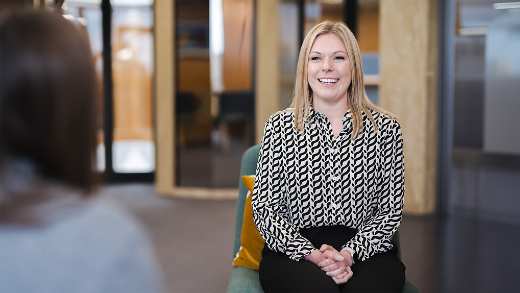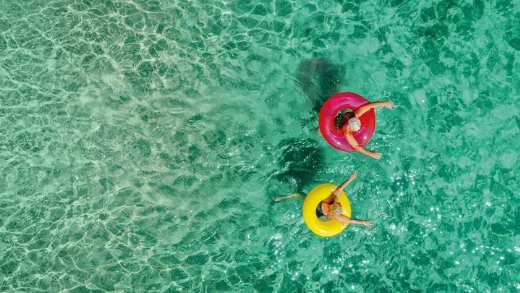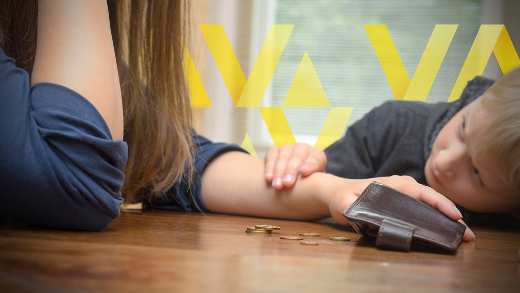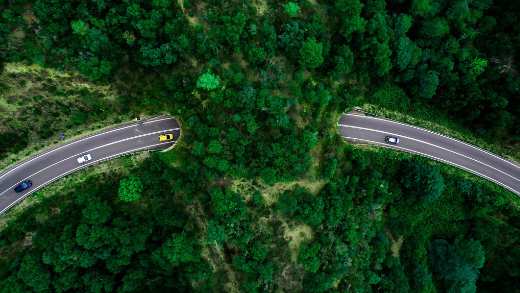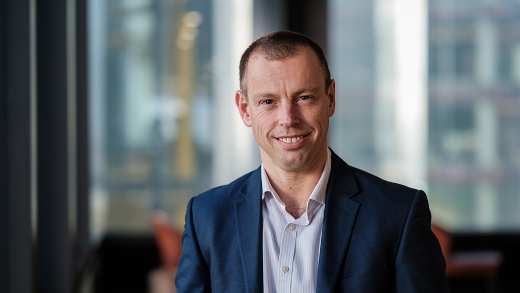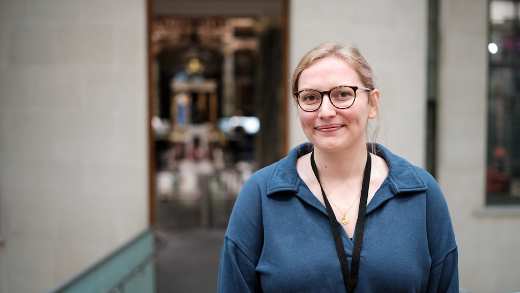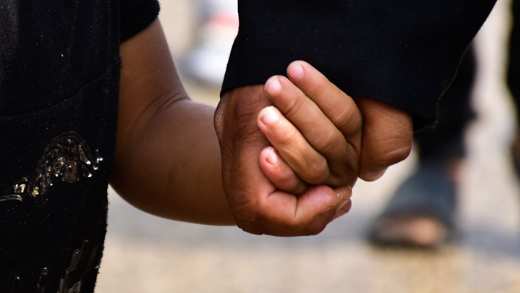Ed Dixon, Head of Responsible Investment at Aviva Investors, on funding a better tomorrow.
Ed Dixon, Head of Responsible Investment at Aviva Investors, on funding a better tomorrow.
When I was 15, my parents built an extension on our house. I remember standing in the mud with my spade, my dad giving me instructions. I really enjoyed the fact that something was happening, something was being built. It was real and tangible - I could touch it.
I scraped through my exams and worked on weekends as a labourer on building sites. I didn't want to go to university. I wanted to work, and I wanted to do something physical.
I qualified as a carpenter, then moved on to project management, building student homes. We got paid in cash back then. You’d finish work on Friday, you’d get a little brown envelope full of £20 notes, and then you’d go to the pub. I did that for years and I loved it.
In the 2008 crash, the developers I worked for wrapped up and emigrated. One of them bought a Ferrari, the other bought a winery. I got made redundant.

On going mad
I started a degree in construction and project management. My first project was Marks & Spencer’s sustainable learning store. They went mad – testing any sustainable building idea you can imagine.
The roof was glulam, a structural timber. The insulation was made from recycled bottles. The walls were filled with hemp and covered in earth to regulate the temperature inside. Timber flooring, recycled tiles, ‘green walls’ – it was incredible.
After that, I did sustainability consulting, building data centres and huge office buildings… But I got frustrated. As a consultant, you have so little impact – you’re on the sidelines.
So, I started an MBA and moved to Landsec, a FTSE100 listed developer. I felt like I’d made it but learning to operate in a corporate environment was a baptism of fire.
My MBA gave me exposure to financial services, so I knew it was the ultimate job for someone looking to make an impact - that's how I ended up at Aviva. I've gone from doing £50 jobs on the weekends to leading the sustainability strategy for £50 billion of real assets.

On grand challenges
Aviva Investors invest on behalf of asset owners, who represent pensioners, savers and insurance policy holders. So, we're investing for people like you and me - anyone with savings or a pension.
My area of Aviva Investors is all about real assets. You get on a train; you go into an office – these infrastructure and buildings are what we invest in.
When we’re looking at investment opportunities, we have two grand challenges.
The first is to decarbonise our economy, while keeping things running. That’s not easy. It means electrifying transportation, electrifying heat which we still largely get from fossil fuels. It means decarbonising manufacturing - we still get steel from mining iron ore and heating it up. We’re using technology which has been around for thousands of years, it’s time to modernise.
The second is to make things fairer. We have a grossly unequal society – at a macro level between developed and less-developed countries, and even here in the UK. So, before we invest, we have to ask, ‘Will this benefit communities? Will it support a fairer world?’ That’s where we need to get to.
Because we invest over the long term and in big volumes, everything we do can make things worse, or better. Our team take that responsibility seriously.

On backing the right deals
Take Glen Dye Moor, a huge land deal – an investment in 6,300 hectares of moorland.
A deal like that takes months, if not years. For Glen Dye Moor, the role my team played was in the formation of the fund that bought it.
A fund is essentially a pot of capital used to make investments. Each fund has a strategy that sets out the type of deals it should invest in. It’s our job to create strategies and form successful funds, which takes a lot of modelling, analysis, and data crunching.
Then it’s over to money managers to go out and find the deals, which can be hotly contested. They say land prices in Scotland have gone up by five times over the last couple of years. Investors are looking for credible opportunities to buy land so they can plant trees to decarbonise their portfolios.
Then there’s Curtain House. A lovely heritage real estate asset in the middle of Shoreditch. I walk past that building a couple of times a week.

Our team helped map out the strategy for the fund that bought Curtain House. It buys assets with strong potential that are not performing well in terms of energy efficiency. We don’t tear them down; we restore them and make them more sustainable. Curtain House is going to be beautiful.
When deals land, everything you imagined starts to become reality. Soon we'll be able to go to Scotland and see the peatlands being restored. We’ll be able to go to Curtain House and stand in the lobby, see people rocking up for work in the morning.
On making the rich richer
More than two billion people live on less than $3 a day. Compare that to people who have an average UK income and a pension – it’s those relatively wealthy people we’re investing for.
Because of that, asset management is considered by some to be a scourge on the planet. It makes rich people richer. Looking at the data, that’s true. You know, we can't relentlessly financialise everything, which is broadly what capitalism has done since the Second World War. And asset management is seen as the pinnacle of capitalism because it controls a huge volume of wealth.
That said, it’s unreasonable to expect capitalism to disappear overnight. I think there’s a role for responsible, long-term investment, which creates jobs and keeps the economy running. And that investment can be done in a sustainable way, without burning through all our natural resources.
You can finance the construction of a wind farm or a solar power plant - someone benefits from that by getting clean energy. You can invest in a new train line connecting two cities - someone gets to work every day a little easier, without using a car. Those are great things.
On adventuring and exploring
I have a four-year-old daughter and a partner. We spend time adventuring and exploring. I like being able to see from one side of the horizon to the other, seeing where the sun meets the sea.
We just went to Costa Rica. They have progressive environmental protection policies, large swathes of National Park, and tourism is intensively regulated to protect the natural world. It’s a model for a sustainable society, and I’d move there tomorrow.
We ended up in the Osa Peninsula, a National Park that you can walk across in a couple of days. It's an unbelievable sanctuary for biodiversity, home to 2.5% of the world’s plants and wildlife. Tapirs, monkeys, crocodiles all bursting out of the jungle. You can’t find that anywhere else.
My daughter, she looks at everything and it's amazing. I took her to Cornwall and she learnt what ‘the horizon’ was. To her, that there’s a point in the distance where the sea meets the sky is incredible. That appreciation for planet Earth, that’s inspiring to me.
On going places you never thought possible
I went through a mental health battle a few years ago. Afterwards, people around me said, ‘I never would’ve guessed’. It taught me that everyone’s got something going on behind what they'll share.
You need to be respectful of that. You need to give people space and let them make mistakes. My boss at the time was massively supportive, she was transformational in helping me get from where I was to where I am today.

My first ever proper boss was an ex-paratrooper. I'm told paratroopers are the crazy ones because if you're going to jump out of a plane behind enemy lines, you pretty much have to be crazy.
He was the most relentless, driven individual I've ever met. He had a massive influence on my life, and he gave me the best piece of advice I've ever been given: Don't let people grind you down.
He meant that, in life, there are lots of reasons not to get up, not to reach for the next promotion, not to tell someone you love them… but you have to keep pushing on. And when you do, you can get to places you never thought possible.
On the future
I keep promising I’m going to build a house. I always buy second-hand clothes - I’ll apply that same thinking and build using second-hand materials. Acquiring things from here, there and everywhere and turning them into a home – that’s the only way to build sustainably.
Professionally, we’ve got some amazing opportunities… More forests to plant, more renewable energy to create, more buildings to refurbish. I'm staying put in asset management because, despite what some believe, the industry can deliver the change the world needs.
Every day, I get to help change the world together with my colleagues, that’s such a privilege.
***
It takes our people to make Aviva a great place to work. For more on life at Aviva, follow us on LinkedIn, Instagram and X.







